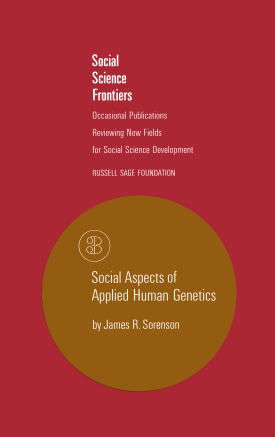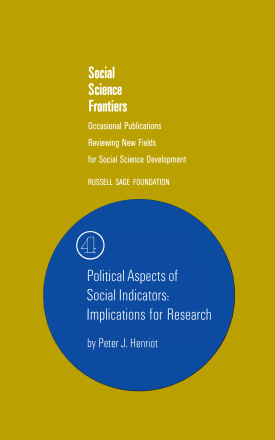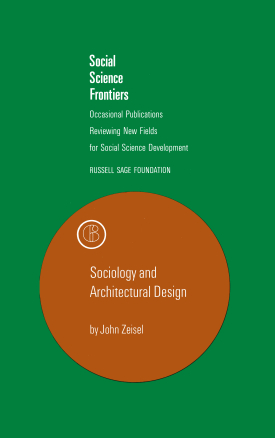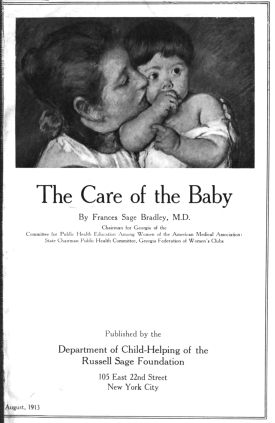
The Handbook of Research Synthesis and Meta-Analysis
About This Book
PRAISE FOR THE PREVIOUS EDITIONS
“ As someone who is highly involved in conducting meta-analyses and teaching meta-analysis to students, I can say that this handbook has a chapter on every issue that arises. Each chapter is written by a major expert in the field and provides authoritative answers. The Handbook of Research Synthesis and Meta-Analysis is a must-have for anyone working on meta-analysis.”
—JANET SHIBLEY HYDE, Helen Thompson Woolley Professor, University of Wisconsin
“[A] tour de force, an indispensable reference that no meta-analyst will want to be without. It is elegantly organized, encyclopedic in breadth and coverage, and articulate in exposition of the role meta-analysis plays in advancing the cumulative nature of knowledge. [The book] is destined to become a classic . . . highly recommended and a must for any serious student or practitioner of the research enterprise.”
—FREDERIC M. WOLF, Learning Resource Center, University of Michigan
Research synthesis is the practice of systematically distilling and integrating data from many studies in order to draw more reliable conclusions about a given research issue. When the first edition of The Handbook of Research Synthesis and Meta-Analysis was published in 1994, it quickly became the definitive reference for conducting meta-analyses in both the social and behavioral sciences. In the third edition, editors Harris Cooper, Larry Hedges, and Jeff Valentine present updated versions of classic chapters and add new sections that evaluate cutting-edge developments in the field.
The Handbook of Research Synthesis and Meta-Analysis draws upon groundbreaking advances that have transformed research synthesis from a narrative craft into an important scientific process in its own right. The editors and leading scholars guide the reader through every stage of the research synthesis process—problem formulation, literature search and evaluation, statistical integration, and report preparation. The Handbook incorporates state-of-the-art techniques from all quantitative synthesis traditions and distills a vast literature to explain the most effective solutions to the problems of quantitative data integration. Among the statistical issues addressed are the synthesis of non-independent data sets, fixed and random effects methods, the performance of sensitivity analyses and model assessments, the development of machine-based abstract screening, the increased use of meta-regression and the problems of missing data. The Handbook also addresses the non-statistical aspects of research synthesis, including searching the literature and developing schemes for gathering information from study reports. Those engaged in research synthesis will find useful advice on how tables, graphs, and narration can foster communication of the results of research syntheses.
The third edition of the Handbook provides comprehensive instruction in the skills necessary to conduct research syntheses and represents the premier text on research synthesis.
HARRIS COOPER is Hugo L. Blomquist Professor of Psychology and Neuroscience at Duke University.
LARRY V. HEDGES is Professor of Statistics and Education and Social Policy at Northwestern University.
JEFFREY C. VALENTINE is Professor of Education and Human Development at the University of Louisville.
CONTRIBUTORS Ariel M. Aloe, Betsy Jane Becker, Michael Borenstein, Kathleen Coburn, Thomas D. Cook, Harris Cooper, Dean Giustini, Julie Glanville, Sean Grant, Larry V. Hedges, Julian P. T. Higgins, Spyros Konstantopoulos, Huy Le, Mark W. Lipsey, Georg E. Matt, In-Sue Oh, Robert G. Orwin, Terri D. Pigott, Frank L. Schmidt, Rebecca Turner, Jeffrey C. Valentine, Jack L. Vevea, Howard D. White, David B. Wilson, Evan Mayo-Wilson, Sandra Jo Wilson, Nicole A. M. Zelinsky
RSF Journal
View Book Series
Sign Up For Our Mailing List
Apply For Funding
By about age 11, most American children acquire the notion that race is an immutable, and meaningful human property that is transmitted from parent to child—known as racial essentialism. Psychologist Lori Markson and neuroscientist Rebecca Schwarzlose will investigate how children between the ages of 5 to 11 and adults think about the inheritance of skin color, a trait associated with the construct of race.

Social Aspects of Applied Human Genetics
About This Book
This report explores the complex ethical, political, psychological, and economic questions that arise from developments in medical genetics. It reviews research in applied genetics at the interface of the social and bio-medical fields, including the counseling and study of birth control, as well as the active treatment and selection of individual genetic attributes.
James R. Sorenson was chair of the Gillings School of Global Public Health’s Department of Human Behavior at the University of North Carolina.
Download
RSF Journal
View Book Series
Sign Up For Our Mailing List
Apply For Funding

Political Aspects of Social Indicators
About This Book
Complementing the focus on the structural and social-psychological aspects of measuring social change, this report establishes a research approach relating social measurement to antecedent and consequent political considerations: political values, policy impact, power consequences, administrative influences, institutionalization, and so forth. This study is directed to any social scientist interested in political phenomena and in the issue of the relationship between social science and public policy.
Peter J. Henriot, Center of Concern, Washington, D.C.
Download
RSF Journal
View Book Series
Sign Up For Our Mailing List
Apply For Funding

Sociology and Architectural Design
About This Book
This book, encouraging more effective collaboration between professional architects and social scientists, outlines how social science research can aid the design process, detailing how physical environment relates to behavior. With a foreword by Hugh F. Cline.
John Zeisel, Harvard University, Department of Architecture
Download
RSF Journal
View Book Series
Sign Up For Our Mailing List
Apply For Funding
About This Book
Published by the Department of Child-Helping of the Russell Sage Foundation in 1913, this paper offers concise advice on early child-rearing to expectant mothers.
Frances Sage Bradley was chairman for Georgia of the Committee for Public Health Education Among Women of the American Medical Association and state chairman, Publich Health Committee, Georgia Federation of Women's Clubs.
Download
RSF Journal
View Book Series
Sign Up For Our Mailing List
Apply For Funding
Pagination
- Previous page
- Page 15
- Next page

